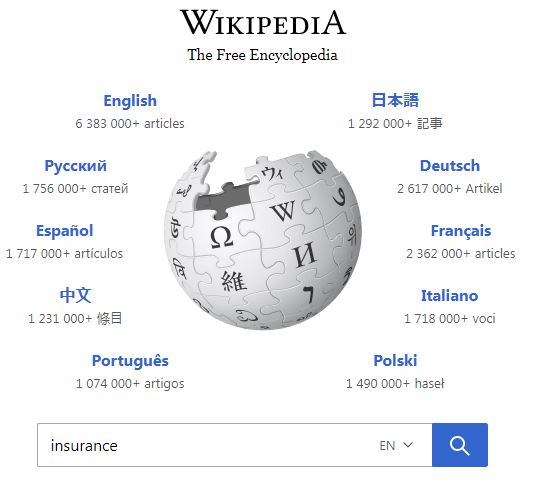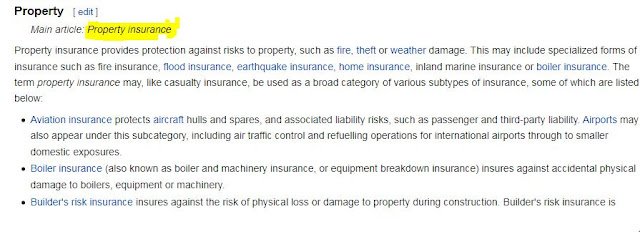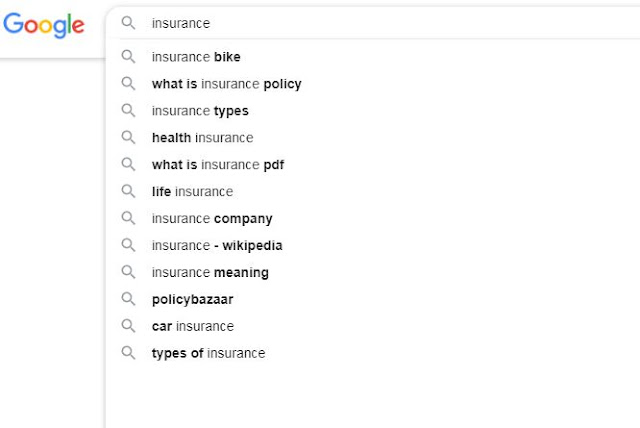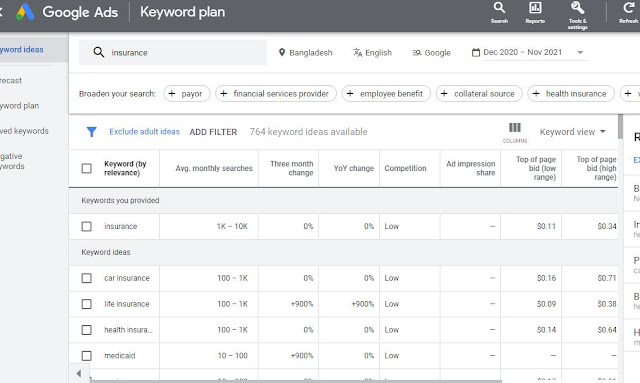If you want to conduct keyword research for the best SEO strategy then you have come to the right place.
Keywords are words and phrases that people use in search engines like Google, Yahoo, and Bing etc. to find something on the internet. Keywords are the basis of SEO. Among the three key SEO types- On-Page SEO, Off-Page SEO and Technical SEO keyword research is the foundation of on-page SEO to rank your websites. It is better to understand your target market and how your target audiences are searching for your content, products, and services.
This article will provide you all about keyword research strategy to implement best SEO strategy containing the following issues:
- What is keyword research
- The importance of keyword
research
- How to conduct keyword
research
- Key factors for discovering
keywords
- How to find and choose keywords
for your sites
- Competitor analysis
- Analyzing Keywords
- Targeting keywords
- Prioritizing keywords
- And so on
What is Keyword Research?
Keyword research is a process of discovering and analyzing search terms that people enter into search engines with the aims of using that data for a precise purpose, frequently for search engine optimization (SEO) or general marketing. Keyword research reveals queries to target, the popularity of the queries, their search volume, paid competition, SEO difficulty, Cost per Click (CPC), and more.
Why is Keyword Research Important in SEO?
Currently, about all businesses depend on content marketing for promoting their businesses. They need to find their target audience. SEO is the weapons to help to marketing your businesses. Content marketing on the internet is increasing rapidly and reviling new and new techniques for the marketers. Since your marketing is based on the internet so you have to get your target audiences or visitors almost every day. If you want to know the valuable insights of the queries that actually your target audiences are searching on Google then you need to conduct keyword research to set an effective SEO strategy. This process provides you the valuable insights of the queries of your target audience. Additionally, if you want to monetize your blogs or websites then you should create SEO friendly content which bring more organic traffic to your site totally for free. To create SEO friendly content you should conduct keyword research deeply.
Keyword research is the foundation of On-Page SEO. It impacts every other task of SEO actions like finding content topics, email outreach, content promotion and so on. So you need to find your target keyword first and then you should keep them in the proper places of your content properly so that search engines find your sites relevant for a particular query to rank as much as high at the top of the search results page. Keyword research is important for and impacts on:
- Finding content topics
- Content promotion
- Traffic growth
- Link building
- Traffic and lead quality
- Search engine ranking
There are a lot of factors that help
to rank any website as much as high at the top of the search result page
including content, on-page SEO, backlink and technical SEO. But keyword research is the number one factor for the
growth of traffic rate.
How to Conduct Keyword Research for Effective SEO Strategy?
You may apply SEO strategy for your own business or to help others to develop their business. Think you are a SEO specialist and someone comes to know that SEO can help to rank their websites. They hired you as a SEO specialist to rank their site. Now before conducting keyword research you should understand three key things about them.
These are as below:
- Who your clients are (it means
their business details)?
- Who their customers are?
- What is their goal?
When you are planning to apply SEO strategy you should not avoid this step before conducting your keyword research. Many people avoid this thinking they know how to conduct keyword research but you should keep in mind that you should know about your client as much as you can to perform better keyword research. You should not focus arbitrary keywords. The effective way is to know about what your target audience actually wants.
To know about the target audience you should list some questions like-
- The types of your products the
people search for
- Who is searching that
particular products
- When the people are searching
that products
- How are people searching that
particular products (the words they use, the questions they use, the
devices they use)
- The causes of seeking that
particular products
- The location of the target audiences (local, national or international)
Asking these types of questions to
your client is the primary step to conduct keyword research. After collecting
the data from the answer you will be able to create SEO friendly content based on that particular products or services and
these actions will get the free organic traffics to your client’s site.
How to Find and Choose Keywords for Your Site
Keyword research is the number one factors among others to rank you website. You need to find and choose low-competition keywords first then you have to create several SEO-optimized contents around that term.
Let’s go deep inside of keyword research gradually.
How to Find Keyword Ideas
As I mentioned before that you should gather knowledge about you client’s business if you work for them as a SEO specialist or you have to know details about your own business and the potential customers. Then your keyword research starts with thinking what your potential audiences are searching for your products, services or content. Finally, keywords research tools can help you to analyze your keywords and find more keywords related your niche.
When starting your keyword research you need to have good knowledge about your industry and then how to use keyword research tools for discovering most suitable keywords for your website.
Generally, there are four key strategies to find potential keywords for your sites and these are as below:
- Brainstorm “Seed”
Keywords
- Competitor Analysis
- Using Keyword Research
Tools
- Studying your Niche in more
details to gather knowledge
Brainstorm “Seed” Keywords
Your seed keywords are those keywords in your mind that you would like to rank for. These will be things like your products, services or content or something that your website discusses.
For example, let’s say you started an insurance company in USA. Then you may ask yourself what topics do your audiences may search for related to your business?
Some topics would come to your mind be like that:
- Vehicle insurance
- Property insurance
- Business insurance
- Life insurance
- Jewelry insurance
- Identity protection or something like that
Keep in mind that these are not
actually keywords yet. These are some keyword research topics. Now create a
list and put everything that comes to your mind related to your business.
Wikipedia Table of Contents
Wikipedia is another valuable source for finding keywords.
Here you can learn how to use Wikipedia to find your keywords.
First, go to Wikipedia and type a broad keyword.
This action will take you Wikipedia page for that broad topic.
Then find the “content” section of the page. Then you will find a list covered by the subtopics on your broad topic.
You may find some keywords here related to your business that would be hard to find any other ways.
You can find keywords form the internal links on that page. For example, on the “Insurance” entry page we have found “Property Insurance”.
If you click on the “property insurance” link then you will find another table contents on “property insurance’ and will finds several keywords related to our first entry “Insurance”.
You can find some keyword ideas in
the "See also" section.
Finding Keywords Using Google and YouTube Suggest
I think you have made a list of topics. Now types each one of them into Google.
And now see carefully what terms that Google suggest to you.
You can find these are some best keywords. Now your work is to add them in your list.
Additionally, type each of them into YouTube and get the keywords that YouTube suggest to you.
Moreover you can use Bing and perform same action like using Google.
Finding Keywords from Related Search on Google
You can find keywords from the related search section of the bottom of the Google search result page.
Find here also in the "People also ask" section in the search results page.
Add them in your list. And type each
of them into Google and YouTube to get Google and YouTube suggest keywords.
Competitor Analysis
Competitor analysis is the best way to start keyword research. After making a list containing your seed keywords type each of them into Google to check who rank on the front page of the Google search results. If you find none of the websites are related to your business then type another one from the list. Then create an Excel file for competitor analysis. Collect the “website name”, “URL”, “title tags”, “meta description”, “h1 tags”, “Alt tags” of your competitor’s website and keep them in that Excel file. Find their popular pages and collect same data.
In this ways you can get several keywords that are very much potential for your business. This file will be used during analyzing your keywords. You should always remember that you should make your competitors who are exactly resemble your business.
Finding Keyword Ideas using Keyword Research Tools
Seed brainstorming and competitor analysis are the great source of keyword ideas. But still there are lots of keywords that you could not find by seed brainstorming and competitor analysis. Keyword research tools provide you also a lot of keyword ideas. All the keyword research tools work the same way. You plug in a seed keyword they pull keyword ideas from their database based on that keyword.
The Google Keyword Planner
You can use Google Keyword Planner for free. It is actually for advertiser but you can use it for your SEO actions.
The Google Trends You can use Google
trends to see the trending keywords.
SEMrush
SEMrush will be your best choice if you want to invest in paid keyword research tool. You can find SEMrush as your huge time-saver.
SEMrush provides also free trial.
You can go here to sign up for free trial.
Study Your Niche
It is obvious that you should know
about your industry first. There are lots of contents you can find on the
internet related to your business niche. You should follow several groups,
forums, community pages etc. where you can find lots of people are asking
questions, discussing several topics related to your niche. You can get lots of
keyword ideas from there which could not found using keyword research tools or
seed brainstorming.
How to Analyze Keywords
Creating a keyword list is not the final step of SEO process. You don’t know till now which one is most potential keyword from your list. There are some key factors you should keep in mind during discovering keywords on your niche or business.
Some of the key factors for choosing keywords are as below:
- Search Volume
- Organic CTR
(Click-through-Rate)
- SEO Difficulty
- Cost Per Click (CPC)
- Keywords Trend etc.
Understanding Search Volume
You should understand the search volume of your keyword. Search volume is the average of how number of times a keyword gets searched per month. For example, “spatial analysis” has a monthly search volume of 2.9K in the USA alone and 7.7K Global volume.
You need to find high search volume keywords.
You should keep in mind that this
number does not mean the number of people search for this query into the search
engine. It is the number of searches. Someone might search this keyword
multiple times in search engine. Additionally, you should know that you will
not be informed by this number that how much traffic you will get by ranking.
Moreover, it is an annual average. So everything you have to analyze to select
keywords.
Organic Click-Through-Rate (CTR)
Many people search their query on Google but they all do not click on the links of the front page of the search results.
The number of Google searchers that click on an organic search result is increasing due to featured snippet and Google ads displaying on the search results page. People are getting informed about their answer by featured snippet based on their search query and sometimes they do not need to see down of the search result page.
Google is displaying their ads at the top of the search results page.
So if you focus only the search volume then you will fail.
You need to estimate the organic CTR
of your keywords also. If you see multiple Google ads and featured snippet in
Google search result page then you should understand that you will not get more
click though you are at the top of the search ranking.
Understanding SEO Difficulty
Generally, a new site does not have a ton of links. It is better to use low competition keywords first if you have a new website or blog. You have to suffer to rank your site if you use super high competitive keywords at the beginning.
You can use long-tail keywords at the beginning. Because long-tail keywords are low-competitive keywords.
It is better to create more and more
content on your niche. Consequently, you can create more links for your site.
Gradually, you should use high competitive terms in you site for ranking.
Discovering High CPC Keywords
CPC stands for “Cost per Click”. It is very important to understand the CPC rate for a keyword if you are a content marketer or monetize your blog.
You have to choose such types of keywords which have commercial value. When someone clicks on the ads displaying on your site you will get paid by the advertiser. So try to choose high CPC keywords balancing the search volume and SEO difficulty.
I think you have learned the basics
of keyword research if you read this full article carefully. Gradually we will
learn advanced strategy for keyword research. If you have any
queries then feel free to ask in the comment section. I will try my best to
answer your question or write content here to share you what I know.
DON'T MISS: What is SEO/Search Engine Optimization? [Learn SEO Process to Rank Your Website on Google]



















Comments
Post a Comment